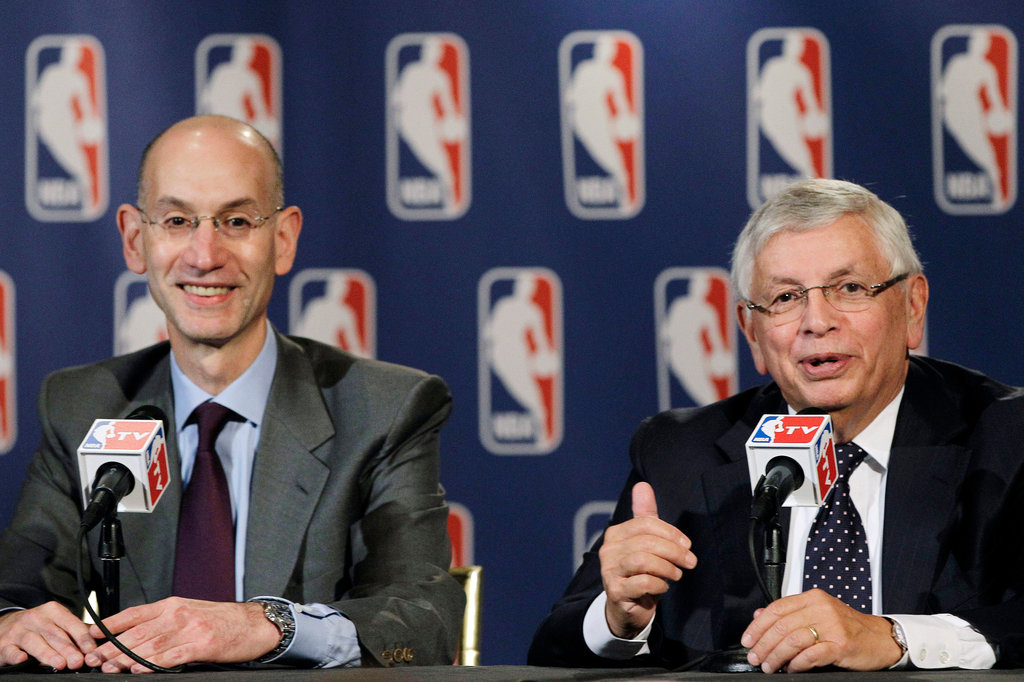
By Reneé A. Garrick, Esq. |
In 2011, Chris Paul was set to make an unprecedented move to join Kobe Bryant and the Lakers in Los Angeles. There was a buzz in the air. The excitement was palpable. Then David Stern brought the hammer down on the whole deal and ended the dream before it ever fully formed. Paul was furious. Basketball fans crucified Stern for it. At the time, there was no greater evil in sports.
Now there are cries for intervention as some fans feel the NBA is crumbling. On Monday, with the world still reeling from LeBron James’ cross-continental move to L.A., DeMarcus Cousins inked a one-year, $5.3 million deal with the Golden State Warriors. And it sent the basketball world into a frenzy. Is the League broken? Are super teams ruining the NBA? Should Adam Silver step in?
Many wrote off the concerns as pure hysteria, but perhaps the NBA really does need to take a look at the downside’s to its current business model—and this goes way beyond DeMarcus Cousins going to Golden State. The reaction to Boogie’s move is about a league-wide problem that has been growing for quite some time.
Let’s be clear, this Warrior’s team will not be the first sports super team or even the first NBA super team. LeBron James himself knows something about that. So what has changed? Why should we be more concerned now?
Super teams are not the death of the League, but they aren’t good for it either. The NBA has gone through some severe growing pains in the last several years that saw it lose its balance, culminating in the severe inequity of talent we see currently.
In 2016, the NBA’s massive new television deal with ABC/ESPN and Turner went into effect. As far back as 2014, when the deal was negotiated, it was foreseeable that player salaries would explode, and the NBA was not ready. The League and the Players Association attempted to head off the impending problem by negotiating a deal to gradually introduce the historic TV revenue in what they called “cap smoothing” but they were unsuccessful. That set off a chain of events that led us to where we are now.
It was that enormous increase in cap space that allowed the Warriors to sign Kevin Durant in 2016 while keeping the entire core of the 73 win Warriors team from the year before. In response, GM’s all over the League spent their new found cap space on huge deals for players who would otherwise never command that type of money (see e.g. Timofey Mozgov, Ian Mahinmi).
Then in 2017, the new Collective Bargaining Agreement poured salt in the open wound. The negotiations produced the “supermax” option for teams to retain franchise players, allowing them to pay far more than any competing team (though, some of that excess money could be excluded from the salary cap under certain circumstances).
Now, having binged in 2016 in response to a Durant trade no one so coming, would be competitors of the Warriors are left with no cap space to try to keep up.
It’s no wonder some fans feel demoralized. But these conditions will change again. Warriors deals will expire and eventually they will likely have to break up their core without some stars agreeing to some serious pay cuts. Other teams will free up cap space. And the League will tilt towards equilibrium again. But that is the, this is now, and the 2018 NBA Finals had the lowest ratings since 2007.
Yes, there have always been great teams in the NBA, but it is difficult to argue that the League is at its most entertaining when there are great teams and at least good teams that can challenge them. It is probably fair to say that isn’t quite the case at the present time. Five days ago, LeBron James announced he was joining the Lakers, not long from now Kawhi Leonard could be joining him.
Will there be this same hysteria? And are fans really prepared for the League to do something about it? These debates about whether or not the League is broken can only distract from the slipping quality of competition for so long. So, if Adam Silver were to make the same move today that David Stern made seven years ago, what would fans say? Are we willing to sacrifice player autonomy for the sake of the League? Could we trust a Commissioner enough?
Reneé Garrick is an attorney with significant media and sports experience having worked with three of the four major sports leagues during her career. Garrick graduated from Muhlenberg College with a BA in Political Science and Business Administration in 2012 and from Harvard Law School with a JD in 2015.